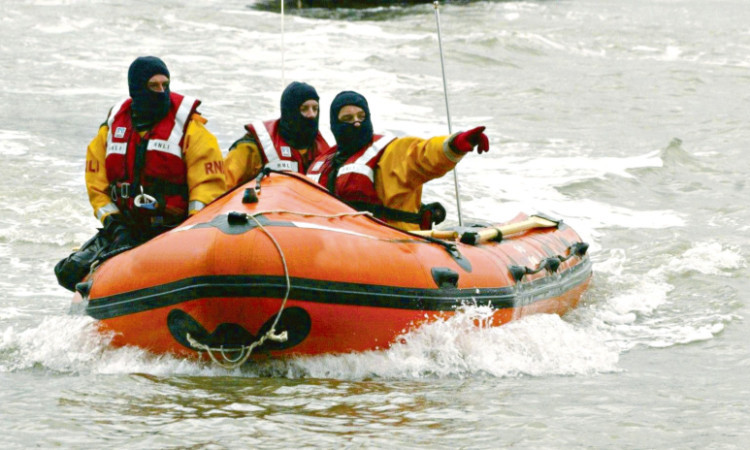
More than half of the coastguard bases around western Scotland and northern England are “dangerously” under-staffed.
Campaigners claim lives are being put at risk by savage funding cuts to the coastguard service which they claim have left life-saving centres overstretched and understaffed.
A Sunday Post investigation revealed during September alone the Humber coastguard, which spans an area from the borders to Southwold in Suffolk, was staffed “below risk assessed levels” for 34 of its 60 shifts, leaving it dangerously low on manpower for a massive 408 hours.
And Belfast, which now covers Western Scotland after the Clyde base shut, was under-staffed for the same amount of time.
Liverpool coastguard which watches over the Mull of Galloway and down to Cumbria and Lancashire, was badly short in 20 of the 60 shifts which accounted for 240 hours.
The revelations came as the biggest tidal surge in decades pummelled the east coast of England yesterday with many other coastal areas of Britain also hit by flooding last week.
Former coastguard rescue officer Dennis O’Connor, coordinator of the National Coastguard SOS campaign, said the staff at the Humber base in East Yorkshire were stretched to the limit.
He said: “They had a hell of a time of it co-ordinating an extended area and that is a concern. If they are under-staffed it means when there are several incidents going on they will not even get a toilet break.”
Jeremy Gautry, of the Public and Commercial Services Union warned lives are being jeopardised.
He said: “Without additional staffing levels if there was a major incident a number of bases would not be able to cope. It would put lives at risk.
“There is a general under-staffing problem at the moment but it is particularly acute in certain areas.”
The closure of the Clyde Maritime Rescue and Coordination centre along with Forth is part of a Government shake-up which will see nine of Britain’s 19 bases close from January 2015.
Blackpool MP Gordon Marsden, the shadow minister with responsibility for coastguard and maritime affairs, has warned the shake-up has left the coastguard service chronically short of manpower and experience.
He said: “The way they have gone about this and their inability to back it up with proper training and recruitment so we have got centres properly staffed with experienced people, has made it particularly concerning and alarming.”
The Maritime and Coastguard Agency said a “pairing” system means other bases can provide coverage when a base is short staffed.
The spokesman added: “Under the future structure, the introduction of the ‘National Network’ as part of the modernisation of HM Coastguard will enable the National Maritime Operations Centre and all other centres to coordinate any incident around the UK coast.
“This will enable workload and incidents to be managed nationally rather than locally as at present. In the meantime, the new coastguard structure and associated pay, terms and conditions have now been formally accepted by the trade unions.
“This means we are now entering the next stage of the programme which is focused very much on moving the workforce from current to the future.”

Enjoy the convenience of having The Sunday Post delivered as a digital ePaper straight to your smartphone, tablet or computer.
Subscribe for only £5.49 a month and enjoy all the benefits of the printed paper as a digital replica.
Subscribe